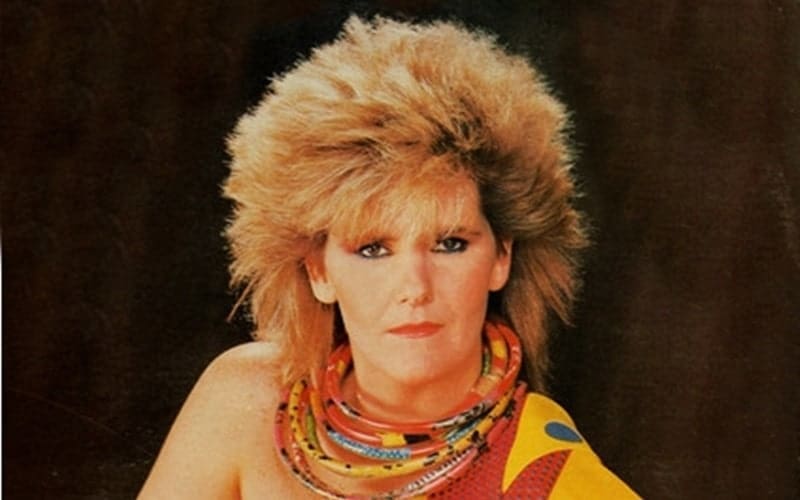
Early Life and Family Background
Penelope Jane Dunlop, known professionally as PJ Powers and affectionately called Thandeka by her fans, was born on 16 July 1960 in Durban, in the then Province of Natal, now part of KwaZulu-Natal, South Africa. Raised during the apartheid era, she grew up in a society marked by racial segregation and inequality. Details about her immediate family are limited, but her upbringing in such a politically charged environment significantly influenced her music and activism.
Education and Early Musical Interests
While specific details about her formal education are not widely documented, PJ Powers discovered her passion for music at a young age. She began singing in school choirs and local talent shows, showcasing her powerful voice and magnetic stage presence. Her early exposure to music laid the foundation for her future career in the South African music industry.
Musical Career and Rise to Fame
PJ Powers’ professional music career began in 1979 when she became the lead singer of an all-female group called Pantha. Although the group disbanded after a year, it sparked her passion for performing, leading her to form the successful Afro-pop group Hotline in the early 1980s. Hotline’s unique blend of Afro-pop and PJ Powers’ powerful voice gained a wide following, breaking down cultural barriers in apartheid South Africa. The band lasted for seven years and produced some of the biggest South African hits of the 1980s. Their energetic performances and vibrant music resonated with a youthful audience, earning them popularity not only in South Africa but also in neighboring countries such as Botswana, Mozambique, and Namibia.
In 1983, during a performance at the Jabulani Amphitheatre, the crowd hailed her with the name Thandeka, meaning “Loved One,” a moniker she continues to hold dear. Her performance included drinking from a calabash, a gesture that delighted the audience and became a memorable moment in her career.
After Hotline disbanded in 1987, PJ Powers pursued a solo career, which flourished during the 1990s and 2000s. She collaborated with some of the most distinguished musical artists in the world, further solidifying her position in the global music scene.
Major Influences and Sound
PJ Powers’ music is characterized by a fusion of Afro-pop and pop genres, underscored by her distinctive and soulful voice. Her sound was influenced by the vibrant musical traditions of South Africa, as well as global music trends. The socio-political landscape of apartheid South Africa also played a significant role in shaping her music, as she used her platform to address issues of unity, hope, and reconciliation.
Significant Contributions and Collaborations
Beyond her musical achievements, PJ Powers has made significant contributions to the music and entertainment industry. She has shared the stage with numerous local and international stars, including Eric Clapton, Joan Armatrading, Annie Lennox, Peter Gabriel, Hugh Masekela, Sibongile Khumalo, Youssou N’Dour, Miriam Makeba, Harry Belafonte, The Corrs, and Mike and the Mechanics. Her performances have transcended cultural boundaries, earning her recognition on the global stage.
In 1995, PJ Powers collaborated with Ladysmith Black Mambazo on the song “World in Union,” which became an international hit and reached number 47 on the UK Singles Chart. She performed the song live at the opening of the 1995 Rugby World Cup in Cape Town for a worldwide television audience.
In 2003, she was invited to write the official 85th birthday song for President Nelson Mandela, which she performed for him and a host of luminaries such as Oprah Winfrey and Bill Clinton. This gesture highlighted her deep connection to the country’s history and her commitment to its future.
Awards and Recognition
Throughout her career, PJ Powers has received numerous accolades, including:
- 12 Gold Discs
- 4 Platinum CDs
- 1 Gold CD
These awards reflect her enduring popularity and the impact of her music on audiences both in South Africa and internationally.
Challenges and Controversies
During the apartheid era, PJ Powers faced censorship from the South African government due to her anti-apartheid activism. In 1988, she was banned from radio and television for one year after performing at a charity concert in Zimbabwe for war orphans. Despite this setback, she continued to use her music as a platform for advocating human rights and social justice.
Personal Life
Details about PJ Powers’ personal life are kept relatively private. She has been involved in various philanthropic efforts and has used her platform to support causes related to human rights and social justice. Her deep connection to her heritage and her commitment to making a positive impact are evident in both her music and her activism.
Legacy and Cultural Impact
PJ Powers’ music has left an indelible mark on the South African music landscape. Her ability to blend Afro-pop rhythms with powerful lyrics addressing themes of unity and reconciliation has resonated with audiences across generations. Her





